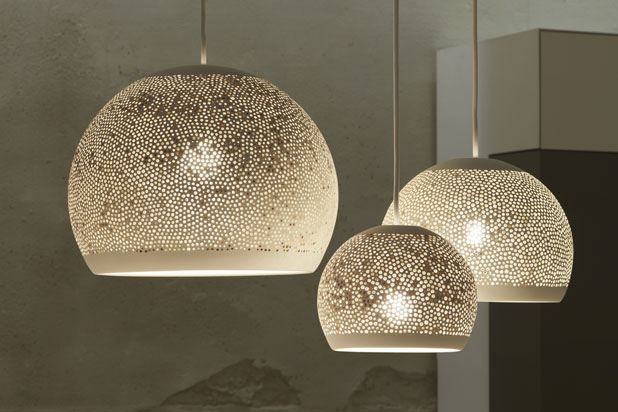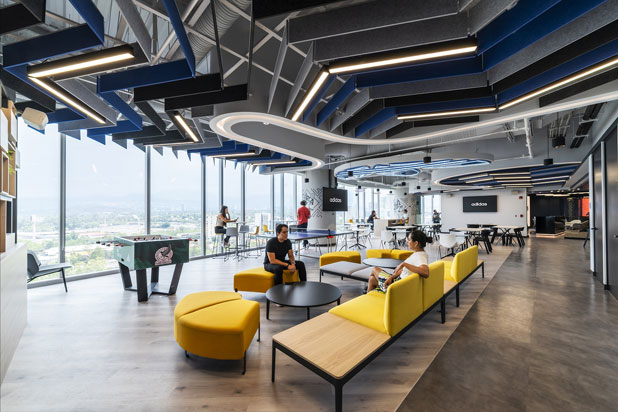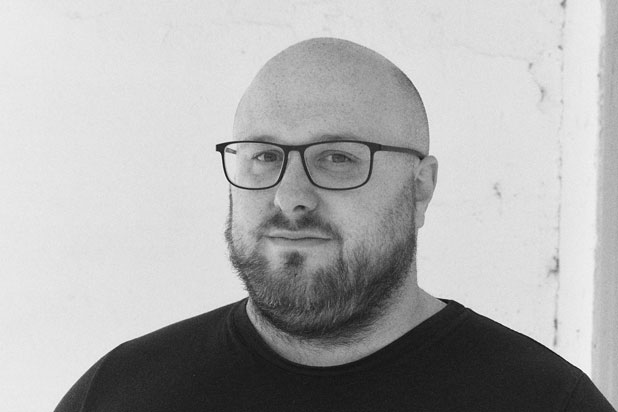The land of the best Catalan cava is also the birthplace of renowned interior and industrial designer, Francesc Rifé. Influenced by minimalism and a family tradition of craftsmanship, he founded his own studio in 1994 in Barcelona, where he creates work based on spatial order, geometric proportion and the use of fine materials.
Now Francesc Rifé heads up a professional team from different design fields, and his projects at home and abroad range from interior and industrial design to concept creation, installations, graphic art and artistic direction. His interior design projects have taken him from restaurants for Michelin-starred chefs like Ricard Camarena to legendary football teams like Real Madrid at their Valdebebas residence and spaces in the Santiago Bernabéu stadium. He has also dreamed up schemes for brands and offices like Roca and Caixa Bank and exclusive hotels like Hotel Caro Valencia.
As an industrial designer, he has created furniture for brands like Point, Akaba, Capdell, JMM, Dynamobel, Koo International, B&V tapizados, Petra and Cármenes and lighting for Estiluz. His most outstanding work features in a series of books, and he has received many accolades, including Contract World Awards, Red Dot, ICFF Editors Awards, HIP Award in Chicago and FAD Awards.
In this interview, Francesc Rifé told us about his career, his projects and his vision of design in a world in constant flux.
Interiors from Spain: We’ve just come back from Habitat Valencia where we saw your designs on many of the exhibition stands. What's the secret of your success?
Francesc Rifé: I don’t think there's any secret. I think it’s perseverance, hard work and many years in the sector. You get to know the companies you work with better and you are both equally engaged.
Interiors from Spain: Tell us about how you started, your studio's experience and the current team.
Francesc Rifé: To begin with, I didn’t really know where I was heading, but I quickly became very passionate about the profession. You never imagine that the people who first admire will end up becoming your own colleagues, or that you might start out on your own and then end up with a large team of people you can work with on projects, not just here in Spain, but all over the world. And over this period I’ve also seen substantial growth in industrial design which was virtually anecdotal to begin with and today is a key part of the studio.
Interiors from Spain: We’ve read that Japanese culture was one of those that most influenced you. In what way has it affected the way you create a piece or design a space?
Francesc Rifé: At one point I visited and worked a lot in Japan, and now in retrospect I can see it was a vital moment for learning and confirming concepts. I wanted to achieve that restraint and rationalism I identify with and with which I feel so at home. That's where I became convinced that, by simplifying to the maximum you could achieve whatever you set out to do.
Interiors from Spain: Restraint, geometry and order are your cornerstones. What are you trying to communicate through your creations and projects? How important are the materials in your work and with which do you feel most comfortable?
Francesc Rifé: My chief aspiration is always order. I think you can achieve everything with it: spatial luxury, warmth, symmetry, proportion. As for materials, natural ones, ones which age well and, of course, the ones that hone in on the essence I’m looking for in my projects. New synthetic derivatives for extra strategic durability can also be interesting for certain projects and products.
Interiors from Spain: You’re a prolific designer and you cover many different fields of design. Where do you feel most comfortable?
Francesc Rifé: I feel comfortable having a range of different kinds of project. I don’t like to get stuck on any one professional field or theme. I think variety enables us to be more productive, innovative and perfectionist in every area.
Interiors from Spain: You've undertaken major interior design projects like the players’ residence for the Real Madrid football team, the “Roca Gallery” in Shanghai and Dubai, and two restaurants for Valencian chef Ricard Camarena. What would you highlight about these projects?
Francesc Rifé: The success of these projects has largely been down to the clients themselves. Their specific personalities and their knowledge of their own business is what has given me the vision to bring about a happy ending. Their experience gives you an intrinsic wisdom which means everything else flows smoothly.
Interiors from Spain: How about your current interior design projects? Can you tell us about any of them?
Francesc Rifé: The studio is riding high as far as international projects are concerned right now, which means we’re engaged in some very major and interesting assignments in fascinating countries like Mexico, with a hotel we’re designing both inside and out. Also housing projects of a size we’re not used to doing in Spain. In Colombia, we're still working on the design of the business lounges for the airline Avianca at El Dorado airport in Bogota. And we’ve designed the first store which Italian footwear brand ASH has opened in Shanghai. They’ll soon be opening a second. We're also involved in stores in London and Milan. Another very interesting project is a little boutique hotel in La Rioja where the site is so characterful the project has its own very special charm.
In industrial design, at the latest Habitat Valencia we were able to see a lot of our new designs on show, and we’re still developing products for the same companies, as well as new brands that we’ll soon be able to see at Salone del Mobile in Milan.
Interiors from Spain: As well as your impressive interior design work, since 2005 you've been artistic director for a number of Spanish companies and every year we enjoy seeing your latest creations at the trade shows we visit. How do you find the time?
Francesc Rifé: Recently I’ve been thinking about my age and realising that I've spent many more years working in the profession than I spent on my education and training. Every minute of every day is somehow linked to design, so it’s hard to share out my time on other tasks that are not work-related. I’m always thinking about it to the extent that I don't see it as hard work but more as the passion I was referring to before.
Interiors from Spain: In one of your publications, you dedicate your work to your parents “who brought you up to appreciate the value of getting things done”. In such a virtual world, how important is educating in values for both the human and technical development of a designer?
Francesc Rifé: When you're young, you tend to criticise and undervalue a lot of things. It's not until you're older that you see what it is that has made you what you are. That's when you realise what your parents, either deliberately or involuntarily, have instilled in you.
Interiors from Spain: You take an active part in congresses and conferences on interior decorating, architecture and design. How do you feel about technological change (digitalisation, robots... what we’d call Industrialisation 4.0) is affecting 21st-century designers when it comes to tackling a new interior design or creating a product?
Francesc Rifé: I come from quite an analogue world and I feel this massive change that digitalisation has caused – and which has obviously helped people to understand our job and speed up the process – is actually making craftsmanship more valuable than ever before. I believe I belong to that last tier of designers where craftsmanship and technology account for 50% each in the equation. I like to keep them both in balance. It’s my job to do so, and it’s also in my character.
Interiors from Spain: And in connection with that, where do you see the future of design going? What trends would you predict for the coming years?
Francesc Rifé: With every year that draws to a close I think, “That’s it, everything’s been invented now!” And then as every year begins, I get enthusiastic all over again about the new things I can see there are still to do. The world is moving on ever more quickly, but I’m optimistic and believe that the future lies in reasserting the need for design in our lives.
As for trends, I don’t believe in them, I just observe them. My work is more about lifestyle, a reflection of my own and my team’s sensitivities in a neverending search for timelessness.





















































